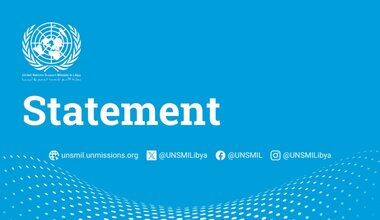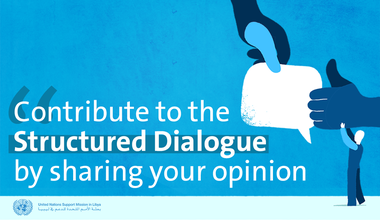Martin Kobler Condemns in the Strongest Terms the Killing of 12 Prisoners in Tripoli, Urges Joint National - International Investigation
Monday 13 June 2016 - The Special Representative of the
Secretary-General and Head of the United Nations Support Mission in
Libya (UNSMIL), Martin Kobler, condemns in the strongest terms the
killing of 12 prisoners, which occurred on 9 June 2016 in Tripoli, after
their release was ordered by the court. He expresses his deep sympathy
and sincere condolences to the families of the victims.
“I am utterly shocked and saddened by this heinous and vile crime, and particularly outraged by family accounts indicating that the victims were savagely beaten and shot in the head and chest several times.” Martin Kobler said. “This crime should be thoroughly and independently investigated and perpetrators must face justice,” he added.
The Special Representative reminds everyone that impunity must end. Rule of law is the foundation of democratic institutions. “I urge the relevant Libyan authorities to establish a joint national - international investigation and I will follow developments closely” stressed Martin Kobler.
The Special Representative also urges for measure to be taken to ensure the safety of all detainees and prisoners, including at the time of their release.
Note to Correspondents:
The circumstances surrounding the killings are still unclear. The Judicial Police (Libya’s prison service) has declared that the 12 prisoners were released from Al-Baraka prison on Thursday, 9 June 2016 at 13.30 in compliance with the court order, before the killings took place.
The bodies of the prisoners were identified by family members in hospitals on Friday,10 June 2016 in the afternoon. According to their families, the victims were savagely beaten and shot in the head and chest several times and some of them were burnt with their hands and feet tied.
Torture and murder are crimes under Libyan law and may constitute international crimes under the jurisdiction of the International Criminal Court.
Thousands of people, including minors and women, are detained all over Libya, many of them arbitrarily – without charge or trial, some having never appeared before a judicial body.
 United Nations Peacekeeping
United Nations Peacekeeping UN
UN







